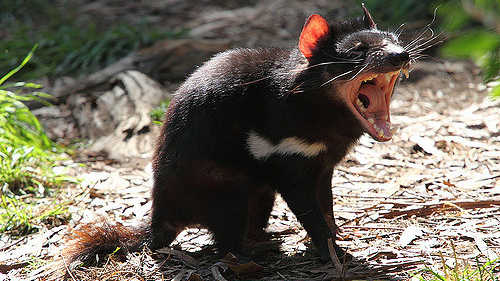 FLICKR, CHEN WUComparing antibodies found in Tasmanian devils (Sarcophilus harrisii) with and without a devastating and contagious facial cancer, researchers found that the marsupials may have a natural immunity to the disease: those animals that had increased levels of the immunoglobulin IgM relative to IgG were less likely to have devil facial tumor disease (DFTD). The research was published last week (May 6) in Scientific Reports.
FLICKR, CHEN WUComparing antibodies found in Tasmanian devils (Sarcophilus harrisii) with and without a devastating and contagious facial cancer, researchers found that the marsupials may have a natural immunity to the disease: those animals that had increased levels of the immunoglobulin IgM relative to IgG were less likely to have devil facial tumor disease (DFTD). The research was published last week (May 6) in Scientific Reports.
“We can deduce then that devils with higher natural antibody ratio are therefore less susceptible to the contagious cancer,” Beata Ujvari of Australia’s Deakin University said in a statement. “Anti-tumor vaccines that enhance the production of these natural antibodies, or direct treatment of the cancer with natural antibodies, could become a solution to help halt this disease. This process known as active immunotherapy, is becoming more and more accepted in treating human cancers, and we think it could be the magic...
The devils were listed as endangered by the Australian Government in 2009, and are also protected under the Tasmania’s Threatened Species Protection Act 1995 and the Red List of the International Union for the Conservation of Nature and Natural Resources.
Interested in reading more?





